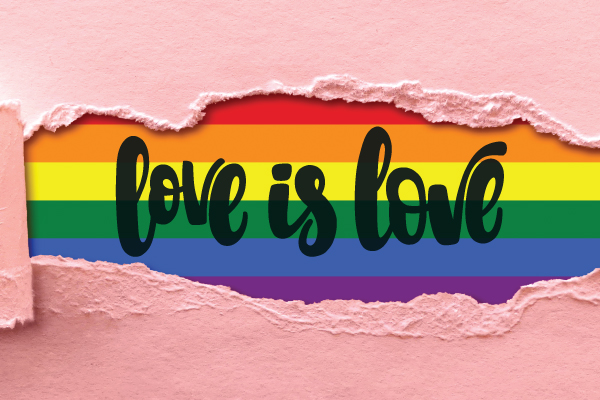A guide to showing up for your loved ones.
By Ashima Sethi
Understanding what ‘LGBTQI+’ represents is one small step in a complex journey towards acceptance for many members of our Thai-Indian society. Once a taboo, the reality is that not everyone in our society is cisgender or straight and that’s okay. From coming out, to the societal pressures that surround being different, there is a lot that our queer friends and family go through that we cannot begin to understand. So all I’m asking is that the rest of us work harder to become more mindful and supportive. Because only by being better allies can we create safe spaces for all forms of love to grow, and isn’t that what the ‘month of love’ is really about?!
- OPEN YOUR MIND AND LISTEN: when your LGBTQI+ loved ones are talking about their experiences, listen without projecting your opinions. Remember that listening and waiting for your turn to talk are not the same thing.
- UNDERSTAND THE SPECTRUM: people’s identities can be fluid, and there are many ways an individual can identify and express their sexuality, sex, or gender. Get familiar with them.
- USE CORRECT PRONOUNS: don’t assume, as some people prefer gender inclusive pronouns such as them/they. If you’re not sure what pronouns to use, introduce yourself and your pronouns and then ask for theirs, e.g. “Hi, my name is Ashima and my pronouns are she/her.”
- BE INCLUSIVE: for example, using “folks” rather than girls/guys, or using “parents” and “partner” instead of mom/dad and girlfriend/boyfriend. Make the effort to include your queer friends in your plans, support their interests, and champion queer-friendly initiatives at the workplace. Remember, there is always more you can do.
- IF SOMEONE COMES OUT TO YOU: be affirming, respect their decision, and don’t pass any judgement. Don’t share their story with anyone else. Coming out is extremely personal, and everyone should do it on their own terms.
- CHALLENGE REGRESSIVE ATTITUDES: stand up against people who speak in a harmful way, use abusive language against queer people, or make lewd jokes. Ignite a conversation about why being discriminatory is unacceptable.
- CONFRONT YOUR PREJUDICES: as an ally you’ll find yourself challenging unconscious bias, stereotypes, and assumptions you never realised you had, whether it’s the jokes you make or the harmful words you use. Being a good ally means being open to being wrong, not taking it personally, and being open and willing to work on yourself.
- EDUCATE YOURSELF: do your research and stay informed. There are a lot of resources available, especially online. You can also ask your LGBTQI+ loved ones if they’re willing to answer them.
- BE ACTIVE: actions often speak louder than words. Support local LGBQTI+ groups, and contribute to fundraisers and events by attending, volunteering, or donating. Use your social platforms to draw attention to LGBQTI+ initiatives, to celebrate queer liberation movements and history, and to demonstrate to your immediate community that they have your full support and respect.
One such group is SEEN (Student Empowerment and Equality Network), a student-led network of schools creating gender and sexuality alliances, and safe spaces in learning environments through the change of policies and curriculum. In a system where LGBTQI+ students are often bullied, mistreated, discriminated against and left behind, SEEN aims to empower them and educate allies to do the same.
I spoke to Shane Bhatla, Founding Member of SEEN about his thoughts on allyship:
“Coming out is never easy. Often, the people we come out to will blame it on external influences such as being abroad or being around queer people. Sometimes our families don’t want to accept us for who we are, or accept that we can be LGBTQI+. But if someone in your family is queer, remember that love and acceptance could save their life. It can be as easy as saying their chosen name and using their pronouns, or as prominent as being a vocal ally in public.
There is nothing wrong with us. We weren’t converted into being queer. Western countries didn’t make us this way. You didn’t do parenting wrong. I was born this way. I’m still your child, your friend, your sibling. I’m still the same person I always was. I just have a little more rainbow in my life. For other queer brown folks, you’re not alone.”
SEEN is powered by Equal Asia Foundation, find them on Facebook and Instagram @deservetobeseen or @equalasiafoundation






